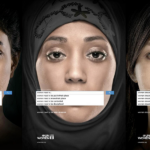The New York Times has sued OpenAI and Microsoft for AI copyright infringement on Wednesday, intensifying the legal battle over the unauthorized use of published work to train new AI technologies which could see Microsoft lose billions of dollars.
The copyright infringement lawsuit asserts that companies gave the New York Times “particular emphasis” when it came to copying content and sought to “free-ride on the Times’s massive investment in its journalism by using it to build substitutive products without permission or payment”. The lawsuit claims that the “unlawful use” of the publisher’s “copyrighted news articles, in-depth investigations, opinion pieces, reviews, how-to guides, and more” to create and train new AI products “threatens The Times’s ability to provide that service.”
According to the Times, millions of their articles were used by OpenAI for this purpose.
While the New York Times’s lawsuit does not include an exact monetary demand, it does specify that the defendants should be held responsible for “billions of dollars in statutory and actual damages” related to the “unlawful copying and use of The Times’s uniquely valuable works.” Equally importantly, it calls for the companies to destroy any chatbot models and training data that has used copyrighted information from The Times.
The publisher’s complaint specifies that it had approached Microsoft and OpenAI back in April this year, raising concerns about its unauthorized use of intellectual property in order to come to an “amicable resolution” involving “technological guardrails” around its AI products. However, these talks did not reach any satisfactory conclusion.
This lawsuit is the latest in a string of similar cases of complaints against OpenAI, including one brought by more than a dozen authors (including George RR Martin, author of Game of Thrones) in September, which accused the company of the unauthorized use of their writing. However, the Times is the first major American publisher to sue the companies, which could potentially lead to a destabilizing conclusion for Microsoft and herald a new magnification of complaints against AI.



